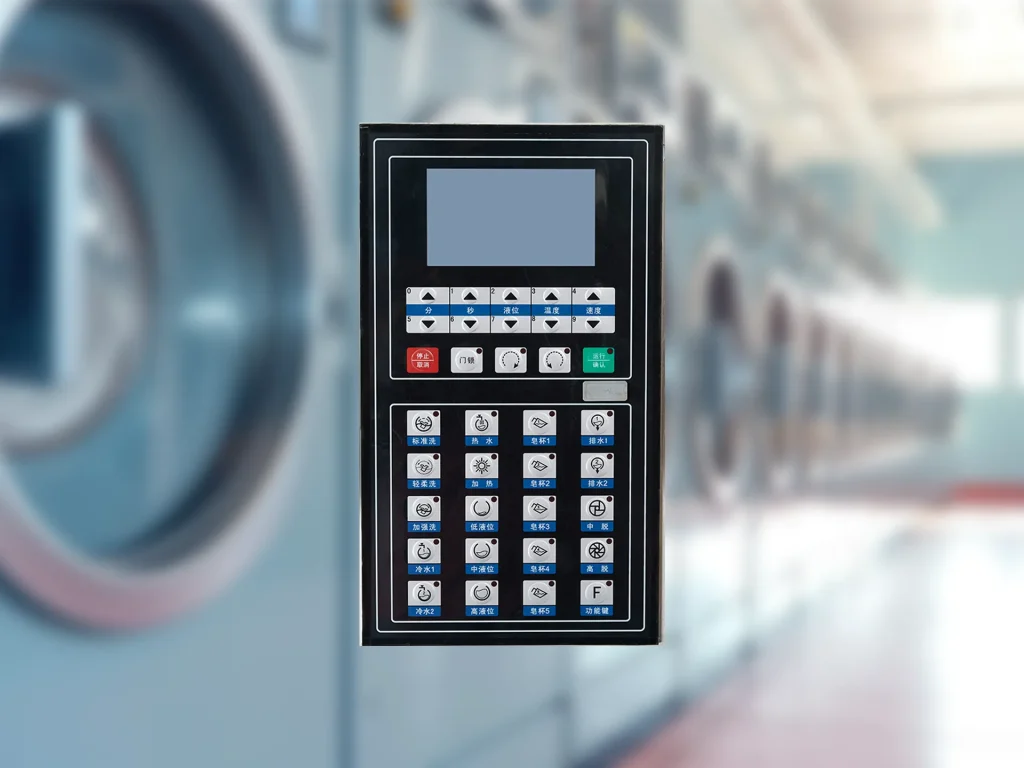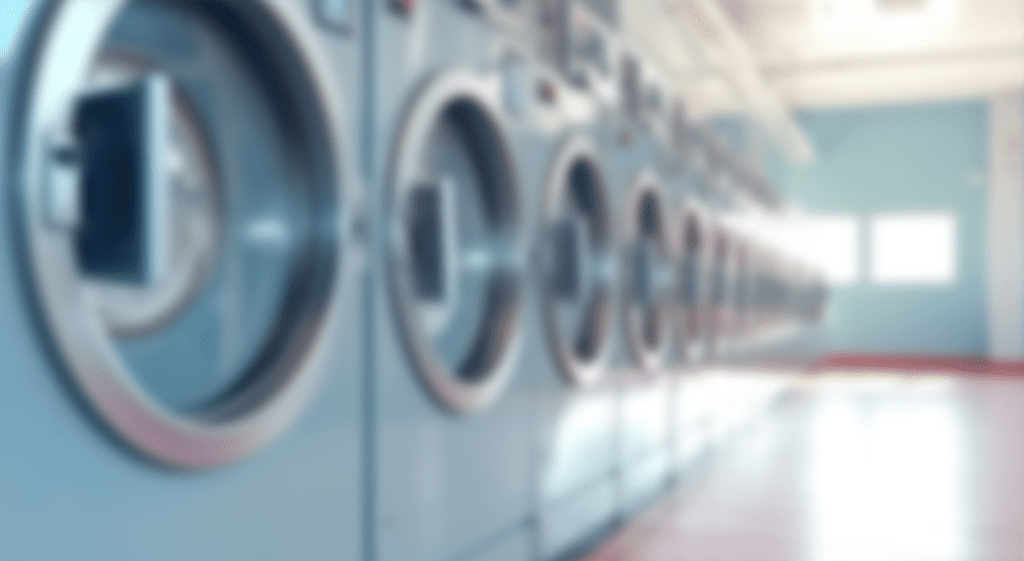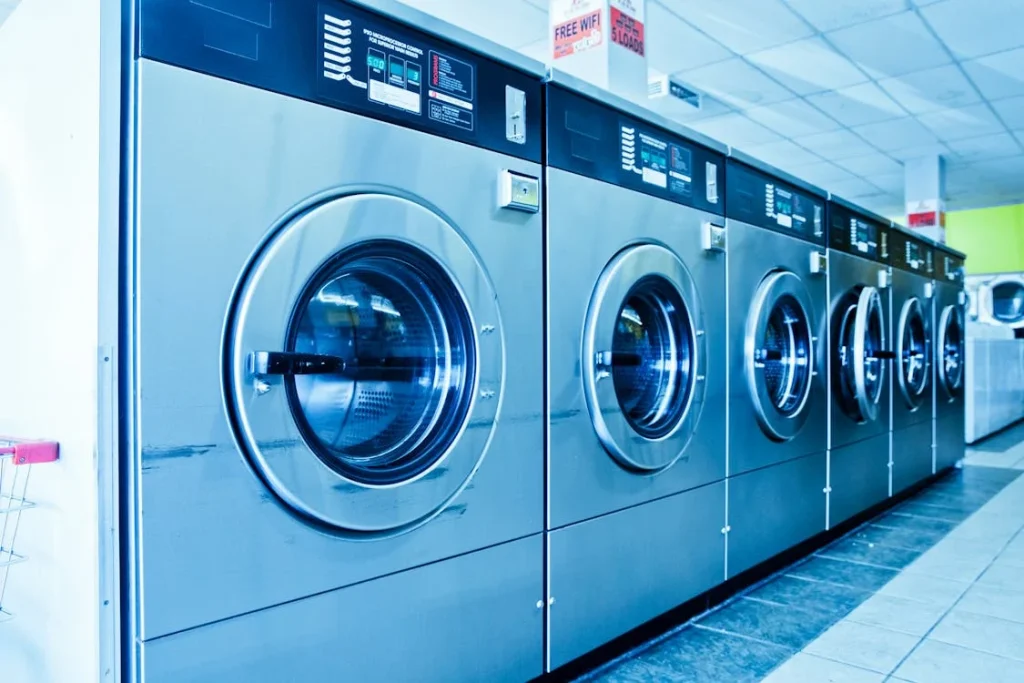Industrial laundry equipment is the backbone of commercial cleaning operations, used in hotels, hospitals, laundromats, and factories. Unlike domestic machines, these heavy-duty systems handle massive loads, ensuring efficiency and hygiene on a large scale. But what exactly are the different types of industrial laundry machines, and how do they function? In this guide, we’ll explore the various categories and how they impact operations.
1. Why Industrial Laundry Equipment Matters

Industrial laundry equipment plays a crucial role in maintaining cleanliness while improving operational efficiency. Below are some key benefits of investing in high-quality industrial laundry machines.
1.1. Industrial Laundry Equipment Efficiency and Productivity
Commercial laundry machines are designed to handle large loads at once, drastically reducing the time needed to process linens, uniforms, and other fabrics. This efficiency is especially important for high-demand industries like healthcare and hospitality.
1.2. Industrial Laundry Equipment Cost Savings Over Time
While the initial investment in industrial machines might seem high, they save businesses money in the long run. These machines use water, detergent, and energy more efficiently than household units, reducing operational costs.
1.3. Industrial Laundry Equipment Hygiene and Compliance
Industries such as healthcare and food service require strict hygiene standards. Industrial washers often include high-temperature cycles and sanitization features that meet government regulations, ensuring a safe and clean environment.
2. Types of Industrial Laundry Equipment
Industrial laundry facilities rely on various types of equipment to complete the entire cleaning process. Here’s a breakdown of the most common machines used in commercial laundry operations.
2.1. Washing Machines
Industrial washing machines are far more powerful than domestic ones, built for high-volume loads and rigorous washing cycles.
2.2. Tunnel Washers
Tunnel washers, also known as continuous batch washers, are designed for high-output operations. They use a conveyor system to move laundry through different wash and rinse sections, increasing efficiency and reducing water usage.
2.3. Barrier Washers
These specialized machines are crucial in environments like hospitals and laboratories. Barrier washers prevent cross-contamination by having separate loading and unloading doors in different areas.
2.4. Washer-Extractors
A combination of a washer and extractor, these machines remove excess water from fabrics before drying, reducing drying times and energy consumption.
2.5. Drying Machines
After washing, proper drying is essential to maintaining fabric quality and efficiency.
2.6. Tumble Dryers
Tumble dryers use hot air and motion to dry large quantities of laundry quickly. They come in various capacities to match the demands of different industries.
2.7. Flatwork Dryers
Flatwork dryers specialize in drying large, flat linens like bedsheets and tablecloths. They operate at high speeds to maintain crisp, professional results.
2.8. Ironing and Finishing Equipment
For industries requiring neatly pressed linens and garments, industrial ironing machines ensure a professional finish.
2.9. Flatwork Ironers
Flatwork ironers handle large linens such as bedsheets, eliminating wrinkles and providing a polished appearance.
2.10. Steam Press Machines
Steam press machines use high pressure and steam to remove creases from uniforms, suits, and other garments.
2.11. Folding and Packaging Equipment
Automating the folding and packaging process speeds up workflow and enhances product presentation.
2.12. Automatic Folding Machines
These machines fold garments, towels, and linens uniformly, increasing efficiency and reducing manual labor.
2.13. Packaging Machines
Some facilities package laundry before distribution, ensuring items remain clean and organized. These machines automate the wrapping and sealing process.
3. Choosing the Right Industrial Laundry Equipment
Selecting the right equipment depends on various factors. Let’s explore the essential aspects businesses should consider before making a purchase.
3.1. Industrial Laundry Equipment Volume and Capacity Needs
Facilities must choose machines based on the number of loads processed daily. Large-scale operations benefit from high-capacity tunnel washers, while smaller businesses might prefer washer-extractors.
3.2. Industrial Laundry Equipment Energy Efficiency and Sustainability
Modern industrial laundry machines come with eco-friendly features, such as reduced water consumption and energy-efficient drying systems. Investing in green technology lowers costs and supports sustainability.
3.3. Automation and Smart Features
Advanced laundry systems incorporate automation, programmable controls, and IoT features for real-time monitoring, helping businesses optimize workflow and minimize human error.
4. Proper Maintenance of Industrial Laundry Equipment
Regular maintenance extends the lifespan of industrial machines, preventing costly breakdowns and ensuring efficiency.
4.1. Regular Cleaning and Inspections
Operators should clean lint traps, filters, and detergent dispensers daily. Routine inspections help identify potential issues before they become major problems.
4.2. Preventive Maintenance Tips
- Lubricate moving parts as recommended
- Check water and energy connections
- Inspect hoses and seals for leaks
- Keep software and firmware updated
4.3. Common Industrial Laundry Equipment Troubleshooting Issues
Some common issues include:
- Machine Not Draining Properly: Check for clogged filters or faulty pumps.
- Excessive Noise or Vibration: Ensure the machine is level and that internal components are not loose.
- Clothing Still Wet After Spin Cycle: Possible belt or motor issues requiring professional inspection.
5. Conclusion
Industrial laundry equipment is an essential investment for businesses handling large volumes of laundry. By understanding the different types of machines available, companies can select the right equipment to enhance efficiency, reduce costs, and meet hygiene standards. Whether you’re in hospitality, healthcare, or another industry, choosing high-quality machines ensures smooth operations and long-term savings.
For expert advice on industrial laundry solutions, contact us today!
6. FAQs
1. What is the most efficient type of industrial washing machine?
Tunnel washers are the most efficient for high-volume operations, using less water and energy while processing large loads continuously.
2. How often should industrial laundry equipment be serviced?
Routine maintenance should be performed daily, with professional servicing every few months to prevent breakdowns.
3. Can industrial washers handle delicate fabrics?
Yes, many industrial machines have customizable settings to accommodate different fabric types, including delicate items.
4. What is the lifespan of industrial laundry equipment?
With proper maintenance, industrial machines can last 10-15 years or more, depending on usage and servicing.
5. Are there eco-friendly options for industrial laundry equipment?
Yes, many modern machines feature energy-efficient motors, water recycling systems, and low-temperature drying options to reduce environmental impact.


